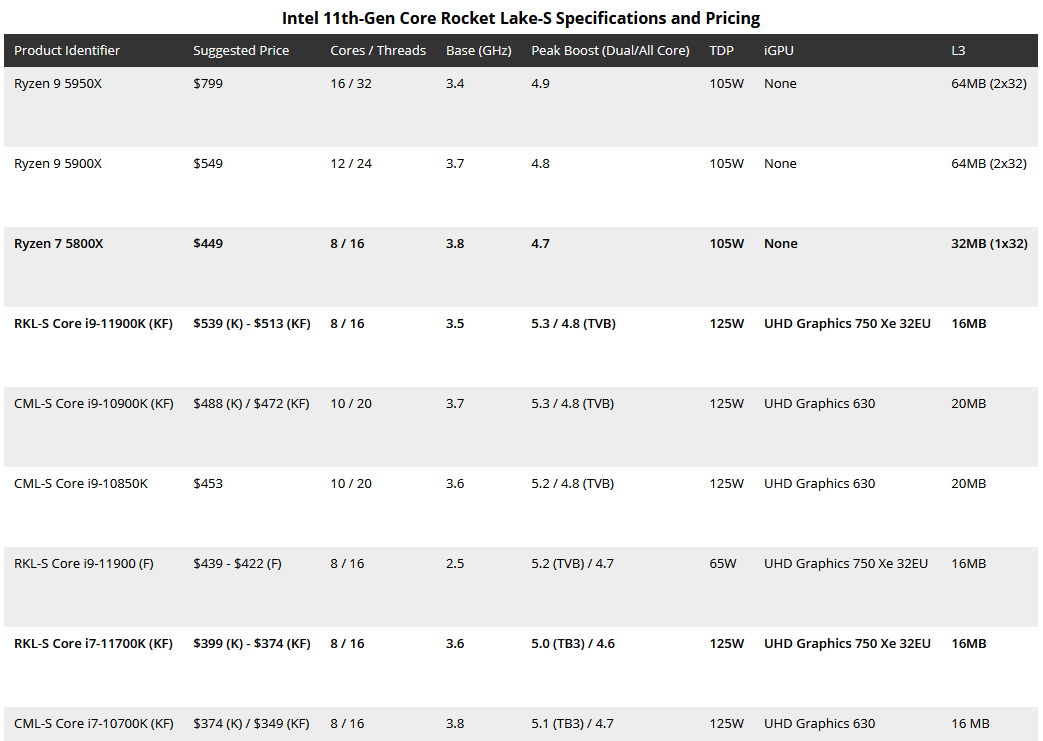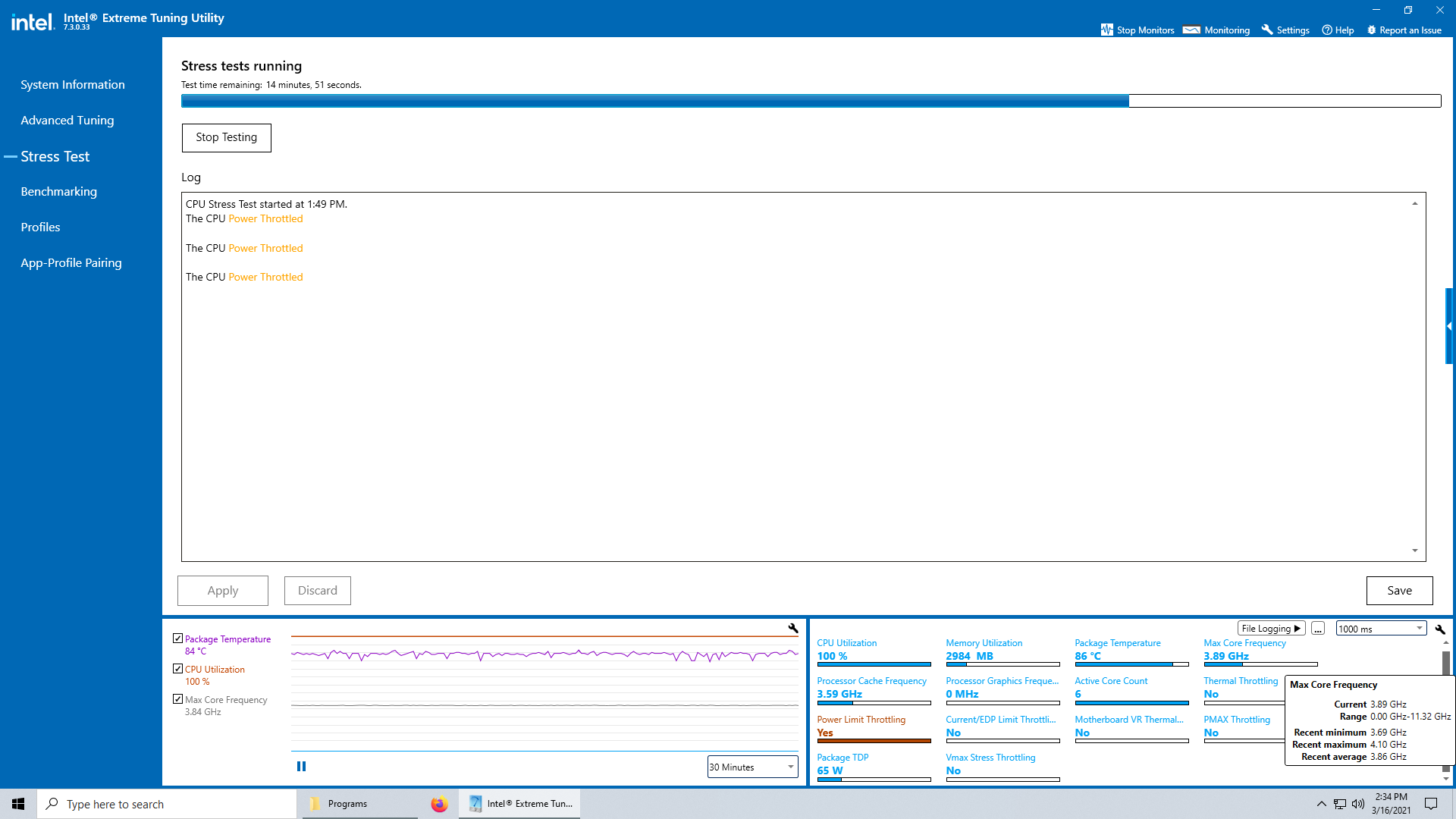Centauri
2[H]4U
- Joined
- Mar 1, 2003
- Messages
- 2,469
"As a result, Rocket Lake's flagship $539 Core i9-11900K comes to market with eight cores while the previous-gen Core i9 family came with 10 cores and AMD's leading chips stretch up to 16. Surprisingly, Intel has actually hiked its recommended pricing on its highest-end chips despite this seeming deficiency, signaling that it thinks its eight-core chips have the chops to take on AMD's competing models."
https://www.tomshardware.com/amp/news/intel-11th-gen-rocket-lake-s-specifications-pricing
Not sure this is the smartest time to maintain a 'margins over all-else' mindset, but I'm sure AMD is happy.

https://www.tomshardware.com/amp/news/intel-11th-gen-rocket-lake-s-specifications-pricing
Not sure this is the smartest time to maintain a 'margins over all-else' mindset, but I'm sure AMD is happy.

Last edited:
![[H]ard|Forum](/styles/hardforum/xenforo/logo_dark.png)

